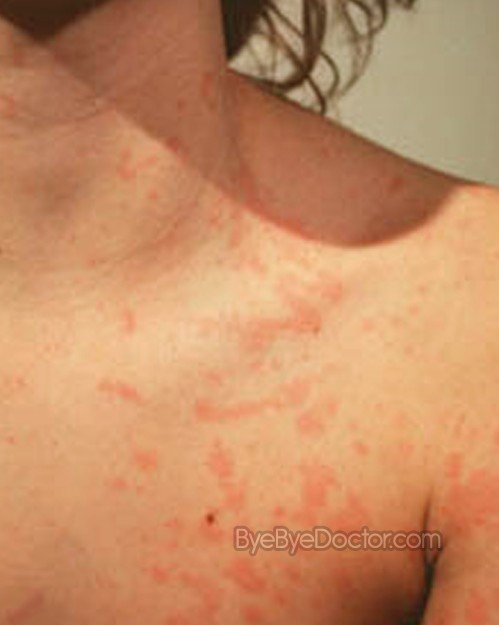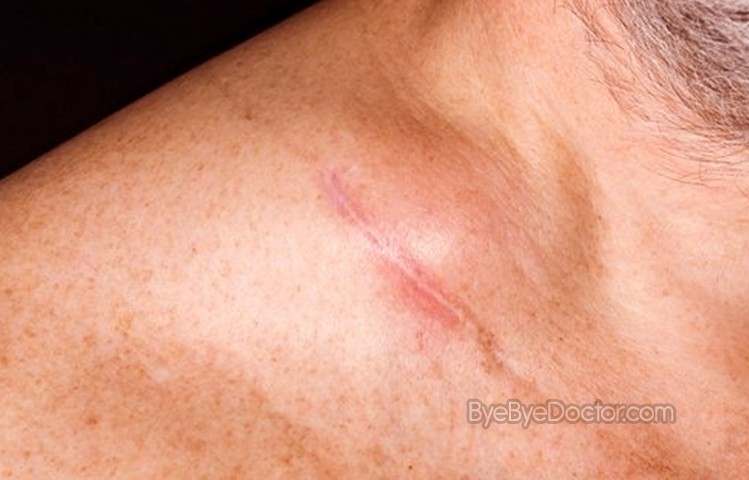Swollen Lymph Nodes
Last reviewed by Dr.Mary on October 3rd, 2018.
Swollen Lymph nodes usually occur as the result of exposure to virus or bacteria. Less common, lymphatic nodes which are swollen can be caused by cancer.
The lymph nodes, known as lymphatic glands, have an essential role in the body’s capacity to fight off bacteria, viruses and other reasons for illnesses. Areas that are common where an individual might readily notice lymph nodes being swollen include the neck, under the chin, in the groin as well as the armpits.
Lymph nodes that are swollen can become inflamed with a problem which is referred to as lymphadenitis. The treatment for lymphadenitis is typically determinant on the cause. In several cases, the passage of time and the use of over-the-counter pain relievers, as well as warm compresses can be all that is needed to treat lymph nodes that are swollen. For cases that are more severe, treatment of swollen nodes involves the diagnosis and treatment of the underlying cause.
Swollen Lymph Nodes Symptoms
The body’s lymphatic system is made up of a network containing:
- Organs
- Lymph nodes situated throughout the body
- Vessels
Most of these lymph nodes are located in the:
- Head
- Neck
- Armpits
- Groin
Swollen Lymph nodes is a sign or symptom that there is a problem someplace in your body. When the lymphatic nodes begin to swell, the individual might notice:
- Painful and tender lymphatic nodes
- Swollen lymphatic nodes – the size of a kidney bean or pea or even bigger
Contingent on the reason for the swollen lymph nodes, other symptoms or signs an individual might consist of:
- A sore throat, runny nose, upper respiratory signs of infections, fever
- Common swelling of lymphatic nodes throughout the body – indicating a disease such as mononucleosis, or HIV, or an immune disorder such as rheumatoid arthritis or lupus.
- Limbs that are swollen, which often indicate lymphatic system blockages may cause swelling in a lymphatic node, too far under the skin to feel.
- Fixed, hardened, swiftly growing nodes, indicate a potential tumour
- Night sweats
- Fever
An individual needs to see a doctor if the swollen lymph nodes are:
- Developed for no obvious reason
- Keep enlarging or have been existing for more than two weeks
- Feel rubbery or hard and do not move when pushed on them
- Accompanied by a fever that is persistent, unexplained weight loss, night sweats
- Accompanied by a sore throat or by problems with breathing or swallowing
Swollen Lymph Nodes Causes
A lymphatic node is a round, small, sometimes bean-shaped collection of cells which are enclosed by a case of connective tissue. These cells are a blend of lymphocytes that create protein elements which detain invaders, for example, viruses – and macrophages, that break down the detained material. These macrophages and lymphocytes screen the lymphatic fluid while it travels through the body as well as protects the individual by terminating invaders.
The lymphatic nodes are positioned in groupings, and each grouping drains a definite area of the body. An individual may be most likely to note any swelling in various spaces, for instance in the lymphatic nodes in the neck, under the chin, in the armpits as well as in the groin. The location of the swollen nodes can aid in identifying the primary cause.
The common reason for swollen lymphatic nodes is infection, specifically a viral infection, for instance the common cold. But, there are different kinds of infections, including bacterial as well as parasitic and other probable reasons of swollen lymphatic nodes. They can consist of:
Infections – Common
- Ear infections
- Strep throat
- Infected or abscessed tooth
- Measles
- Mononucleosis
- Human immunodeficiency virus (HIV) — the virus that causes AIDS
- Skin or wound infections, for instance erysipelas or cellulitis
Infections – Uncommon
- Some STDs, for instance syphilis
- Tuberculosis
- Immune system disorders
- Toxoplasmosis – a parasitic infection
- Cat scratch fever – bacterial infection due to cat bite or scratch
- Lupus – inflammatory chronic disease targeting joints, kidneys ,skin, blood cells, lungs and heart
- Rheumatoid arthritis – inflammatory chronic disease that targets synovial tissue lining joints
Cancers
- Lymphoma – cancer of lymphatic system
- Other cancers that spread or metastasized to lymphatic nodes
- Leukemia – cancer blood-forming tissue, bone marrow and lymphatic system
Other likely, but very rare reasons include certain drugs, for instance the anti-seizure drug phenytoin know at Dilantin, and protective medications against malaria.
If an individual has an infection as the reason for swollen lymph nodes and it is not treated, complications that could occur consist of:
- Formation of abscesses – a localised collection of pus caused by the infection
- Infection of the blood system or bacteremia – this is sepsis which is caused by overwhelming infection of the blood system.
Swollen Lymph Nodes Diagnosis
To diagnose what might be the cause of the swollen lymph nodes, the primary care physician will need:
- Medical history
- Physical exam
- Blood tests
- Imaging studies
- Lymphatic node biopsy
Swollen Lymph Nodes Treatment
Swollen lymph nodes which are caused by viruses often return to normal condition after the viral infection gets better. Treatments for swollen lymph nodes from other causes depend on the cause:
Infection
A conventional treatment for swollen lymph nodes that is caused by a bacterial infection is antibiotics. Pain relievers, as well as fever reducers over the counter, include ibuprofen such as Motrin, Advil, aspirin as well as acetaminophen such as Tylenol. Ibuprofen, as well as aspirin, has anti-inflammatory properties that can help to reduce some of the swellings. A child should not be given aspirin without the doctor’s advice to the link to Reye’s syndrome. This is a very rare but serious illness that may affect teenagers as well as children recovering from an infection that is viral. If the swollen lymph nodes are due to the HIV infection, you will need to receive treatment for that problem.
Immune disorder
If the swollen glands are because of problems such as rheumatoid arthritis or lupus, treatment is directed to the underlying condition.
Cancer
Glands that are swollen because of cancer require treatment for specific cancer. Depending on the kind of cancer, treatment can involve radiation, surgery or chemotherapy.





